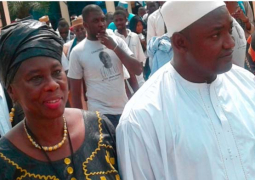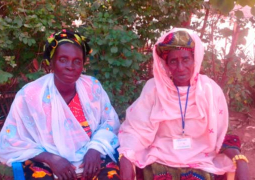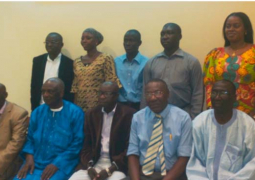The UDP militant’s acquittal followed a ruling on a no-case-to-answer submission by senior defence counsel Ousainou Darboe.
Delivering his ruling, the trial magistrate said the accused was charged with giving false information to a public officer, which he denied.
He said the prosecution called four witnesses during the trial and closed their case on 3 March 2014.
The defence made a no-case submission on 12 March 2014.
The prosecution was expected to bring witnesses to prove that the accused had given false information to a public servant.
The prosecutor had said they based the trial on the contents of the permit, which was for a social gathering and musical entertainment.
“I have gone through the testimonies of the prosecution witnesses, and all the evidence including exhibit A against the accused person,” said the magistrate.
Meanwhile, the defence counsel had made a no-case submission, and invited the court to look at the charge sheet dated 23 October 2013, which charged the accused of giving false information to a public servant.
Counsel further said that the particulars of offence stated that the accused wrote an application letter for a permit to stage a political gathering, adding that an application was different from giving information.
“An application is a request for something which can be refused or granted”, counsel said.
The prosecution, in response, said the accused was charged with giving false information, which was based on the application he made.
“To determine the case of false information, you will consider two rules. The information given must be given to a public officer or the information given is false,” said the magistrate.
It was not disputed by the prosecution that the permit was written, but it was for a social gathering and musical entertainment, which later was misused for a political rally, which the prosecution said was false information because it was given to a public officer.
The magistrate said the fourth prosecution witness did not give any evidence, because he said he was not in Tanji; likewise the third prosecution witness who also said he was not in Tanji at that material time, and that he never met with the accused person and was not aware of the meeting.
The first prosecution witness said he approved the permit for a social gathering, but he did not visit the place to find out whether the permit he had given was used for the purpose or not and did not send any other person to find out as well.
The magistrate said it was the second prosecution witness, the custodian of the centre, who said there was no meeting, and that he himself asked Ousainou Darboe whether he was there for a meeting or not and he (Darboe) replied that he was not there for a meeting.
The second witness added that he was called by the NIA, who asked whether Darboe attended the program and said ‘yes’, but added that there was no meeting, under cross-examination.
“The prosecution did not produce any direct evidence in court that will ensure conviction or that will take the matter into substantial evidence to determine whether the accused should enter into defence,” the magistrate said.
“The prosecution did not lead good grounds in the case, because the accused had merely applied for a permit and that is not false information,” she further stated.
“The prosecution did not establish the fact on alleged false information charged, and I therefore acquit and discharge theaccused,” announced themagistrate.
Read Other Articles In Article (Archive)

Coalition candidate given clean bill of health for Dec poll
Nov 10, 2016, 10:33 AM

HEIN trains farmers on Alternative Pest Management, Best Agronomic Practices
May 15, 2017, 11:35 AM


